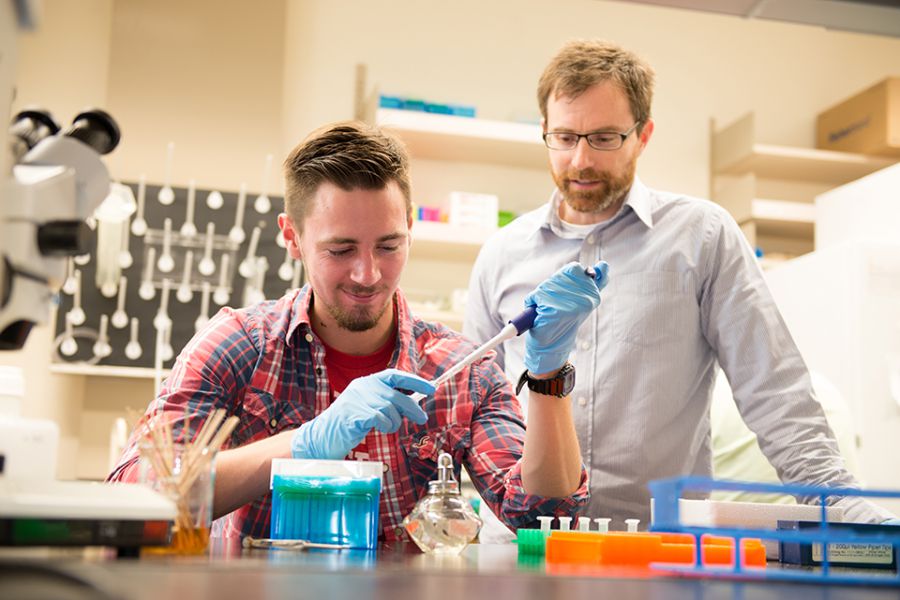Choosing a college wasn’t the only challenge Tyler Malone faced after high school. He also had to choose between math and biology. Malone excelled in both subjects and could see his future branching in either direction.
However when Malone toured Illinois State, he realized he could have the best of both worlds when math and biology professors he met at the University told him about an exciting new field—biomathematics.
Biomathematicians analyze large groups of data and use the results to draw conclusions about organisms. In short, these researchers rely on biology to identify the nature of a problem and math to solve it.
“I asked a ton of questions and tried to learn a ton about biomathematics,” Malone recalled. “As it turns out, at the time ISU was the only public school in Illinois with a master’s program in biomathematics. That expressed dedication to this cross discipline that other schools didn’t have.”
Malone enrolled at Illinois State in fall 2010. He noted the “big university with a compact campus” along with the opportunity to join the drumline and pursue his academic interests as key factors in selecting the ISU. The Honors Program and Presidential Scholars program also made the University an obvious choice for Malone.
“The Honors Program’s best asset is finding what your individual goals are and helping you succeed at those goals,” Malone said. “A lot of that comes down to the relationships with the faculty members. No matter what field you are in, what your major is, what your future plans of study are, there are faculty at ISU who have experience doing what you want to do. ”
Through the Honors Program, Malone connected with Professors Olcay Akman from the Department of Mathematics and Professors Steven Juliano and Tom Hammond from the School of Biological Sciences. Malone, who chose to double major in biology and mathematics, was able to form mentor-mentee relationships with the faculty members and also collaborate on research in their areas of expertise.
One project saw Malone working alongside Hammond performing bioinformatics/genomics research on a species of fungus known as Neurospora crassa. Hammond and Malone utilize computer programming and molecular laboratory techniques to analyze the genomes of fungi for use in experiments that address fundamental questions in biology.
After graduating in May 2015, Malone plans to work on his master’s in biomathematics after which he will decide whether he work in the field as a professional or directly pursue his Ph.D. Either way he feels he is already gaining experience that will be crucial to his career.
“Professional experience with these faculty members is the most advantageous way to go about preparing for a career, and the best way to get involved is through the Honors Program,” Malone said.

